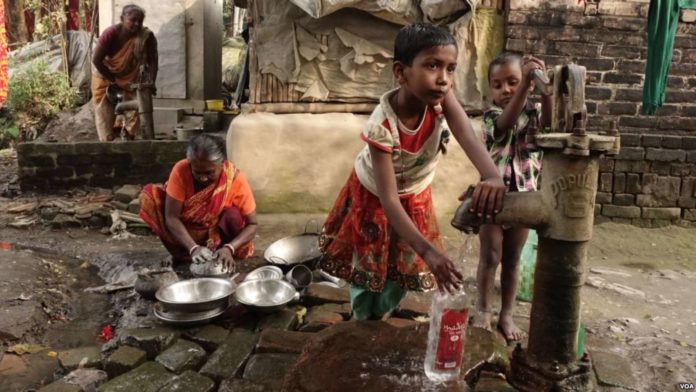63 million people living in rural India do not have access to clean water, said Wild Water, a report on the state of the world’s water.
Despite being one of the fastest growing economies in the world, India continues to face a major challenge of ensuring water security for its growing population. According to the report by WaterAid released on the occasion of the World Water Day on Wednesday, lack of government planning, competing demands, rising population and water-draining agricultural practices are all placing increasing strain on water resources.
The report said that around 663 million people globally live without access to clean water, with almost 80% living in rural areas.
Rural communities are often located in geographically isolated areas, with inadequate infrastructure. They mostly depend on farming to earn a living and are among the worst affected by persistent dry spells. Women and girls, who are typically responsible for collecting water, may have to walk greater distances during prolonged dry seasons.
The Intergovernmental Panel on Climate Change (IPCC) projects that temperatures in Africa will increase faster than the global average rise during the 21st century, effects of which can be dire particularly to the poor in the region.
Extreme weather events such as rising seawater temperatures, higher rainfall, and humidity are expected to bring about diseases including cholera, blinding trachoma, malaria and dengue.
Nearly 67% of India’s population lives in rural areas, with 7% of the rural population living without access to clean water. According to the official Ground Water Resources Assessment, more than one-sixth of India’s groundwater supply is currently overused.
India is in the top 38 per cent of countries most vulnerable to climate change and least ready to adapt, according to the Notre Dame Global Adaptation Index.
“With 27 out of the 35 states and union territories in India disaster prone, the poorest and the most marginalised across the country will bear the brunt of extreme weather events and climate change and will find it the hardest to adapt,” said V.K. Madhavan, WaterAid India’s Chief Executive.
“Along with access to safe water, it is critical that communities have the necessary tools, infrastructure and preparedness to deal with the effects of extreme weather events and climate change”, he said.
Making communities water secure helps them become more resilient to extreme weather and better able to adapt to climate change. The report also urges governments to prioritise access to water, sanitation and hygiene, particularly for the poorest people.


























